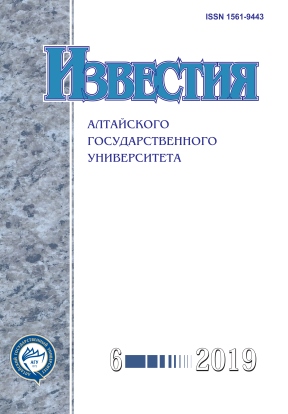Causes and Consequences of the Conclusion of the Russian-Kashgar Trade Agreement of 1872
УДК 93 ББК 63.3(2)522-6+63.3(5)
Abstract
Relations between Russia and the Uighur theocratic state Yettishar, created during the Muslim rebellion of the Uigurs and the Dungans of Xinjiang in the 60-70s of the 19th century, is important but insufficiently studied page of the history of international relations in Central Asia.
The emergence of the Islamic state in the zone of contiguity of interests of the three empires — Russia, China and Great Britain — dramatically changed the political situation in the region. Faced with the new conditions, the Russian Empire, striving for the earliest possible strengthening of its positions in Kazakhstan and Central Asia, had to determine its foreign political priorities.
As a result, Russia took a noninterference position in the Sino-Muslim confrontation. At the same time, the situation in the border areas has not gained stability. The new neighbors demonstrated a defiant attitude, which attracted the attention of the administration of the Turkestan region and constantly provoked new distractions of forces and means. At the same time, relations with China got complicated, but at the same time it was necessary to solve the problem of restoring regional trade and economic ties and solve the border issue.
One of the significant stages in the development of a more or less transparent configuration of relations with the unpredictable governor of the newly created state formation is the conclusion of the Russian-Kashgar trade agreement of 1872.
Downloads
Metrics
References
Исиев Д.А. Уйгурское государство Йэттишар. М., 1981.
Моисеев В.А. Россия и Китай в Центральной Азии (вторая половина XIX в. — 1917 г.). URL: http://perviydoc.ru/v23446/моисеевв.а.россияикитай в центральной_азии?page=4;https://web.archive.org/web/20071112013058/http://new.hist.asu.ru/biblio/ruskit/01.html (дата обращения: 04.07.2019).
Стрельбицкий И. Земельные приобретения России в царствование императора Александра II-го, с 1865 по 1881 год. СПб., 1881.
Архив внешней политики Российской империи. Ф. СПб., Главный архив. 1-9. 1865-1878. Оп. 8. Д. 14.
Центральный государственный архив Республики Казахстан. Ф. 44. Оп. 1. Д. 5649.
Кожирова С.Б. Российско-китайская торговля в Центральной Азии (вторая половина ХК — начало ХХ вв.). Астана, 2000.
Российский государственный военно-исторический архив. Ф. ВУА. Д. 6823.
Гарбузарова Е.Г. Восточный Туркестан в спектре геополитических интересов России и Великобритании в XIX веке. URL: http://elibrary.auca.kg/bitstream/123456789/323/1/ Garbuzarova_2009_2.pdf (дата обращения: 04.07.2019).
Дубровская Д.В. Судьба Синьцзяна. Обретение Китаем «Новой границы» в конце XIX в. URL: http://www. tinlib.ru/istorija/sudba_sinczjana/p1.php (дата обращения: 04.07.2019).
Центральный государственный архив Республики Узбекистан. Ф. И-715. Оп. 1. Д. 52.
Шкунов В.Н. Синьцзян в системе российско-китайской торговли в XIX в. // Известия Самарского научного центра Российской академии наук. Т. 19, № 3. 2017.
Моисеев С.В. Взаимоотношения России и уйгурского государства Йэттишар (1864-1877 гг.). Барнаул, 2006.
Izvestiya of Altai State University is a golden publisher, as we allow self-archiving, but most importantly we are fully transparent about your rights.
Authors may present and discuss their findings ahead of publication: at biological or scientific conferences, on preprint servers, in public databases, and in blogs, wikis, tweets, and other informal communication channels.
Izvestiya of Altai State University allows authors to deposit manuscripts (currently under review or those for intended submission to Izvestiya of Altai State University) in non-commercial, pre-print servers such as ArXiv.
Authors who publish with this journal agree to the following terms:
- Authors retain copyright and grant the journal right of first publication with the work simultaneously licensed under a Creative Commons Attribution License (CC BY 4.0) that allows others to share the work with an acknowledgement of the work's authorship and initial publication in this journal.
- Authors are able to enter into separate, additional contractual arrangements for the non-exclusive distribution of the journal's published version of the work (e.g., post it to an institutional repository or publish it in a book), with an acknowledgement of its initial publication in this journal.
- Authors are permitted and encouraged to post their work online (e.g., in institutional repositories or on their website) prior to and during the submission process, as it can lead to productive exchanges, as well as earlier and greater citation of published work (See The Effect of Open Access).








